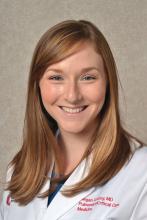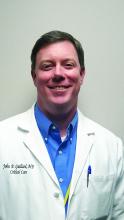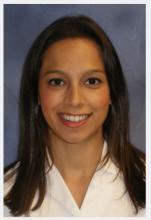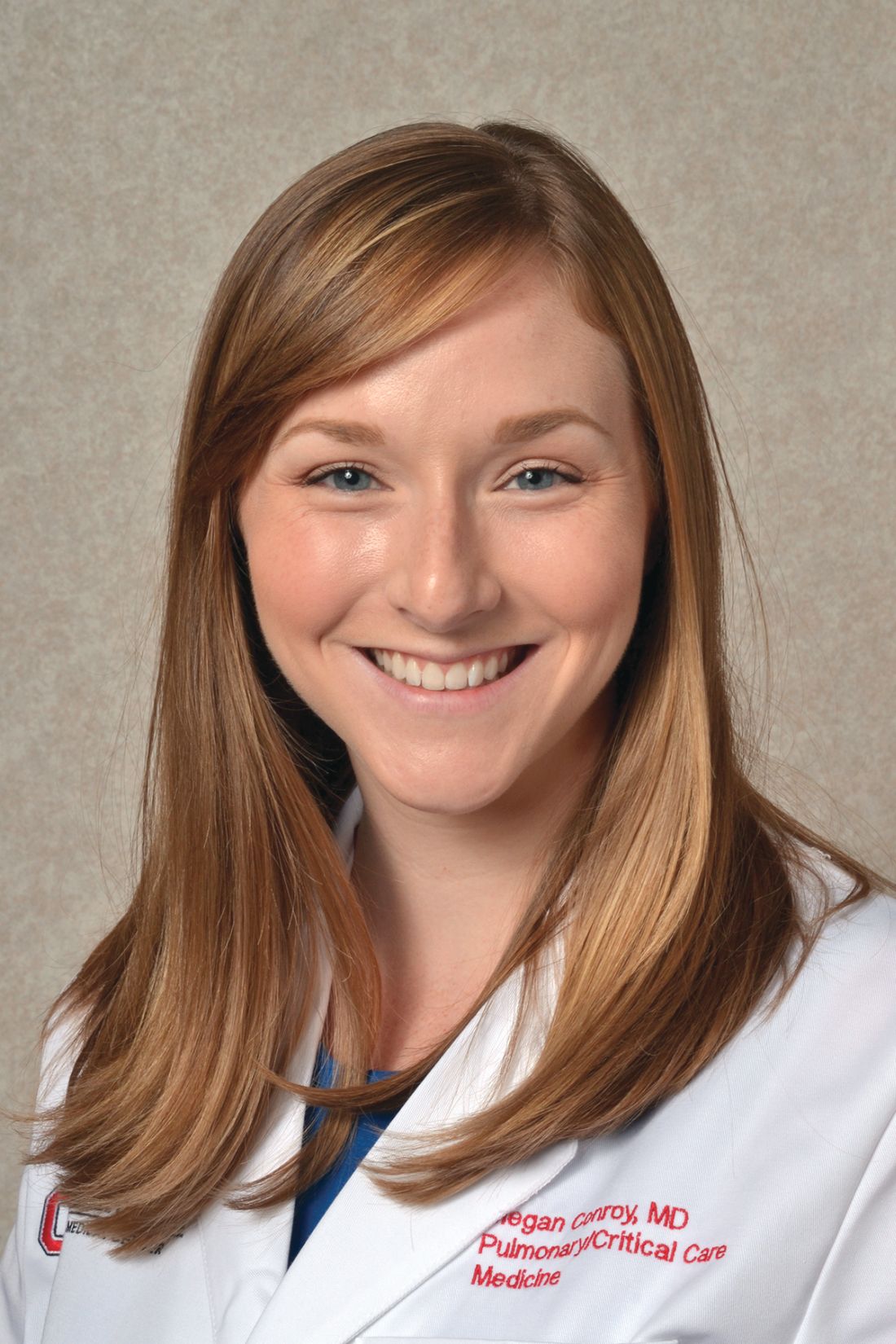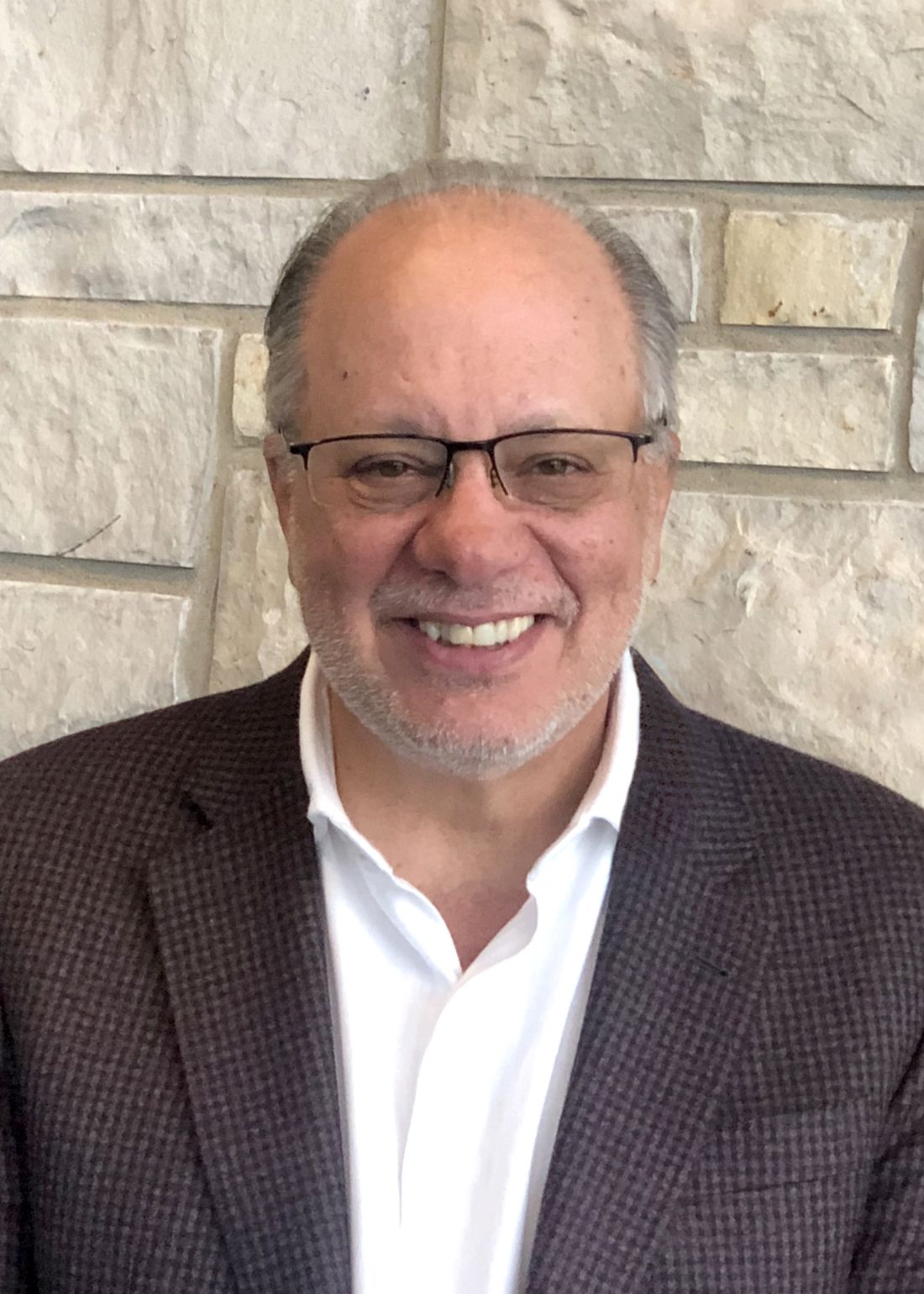User login
Biologics. NetWork name change. Rapid sequence intubation. Competitive bidding. Genomic classifier.
Airways disorders
Asthma biologics: which patients?
Biologic therapies targeting specific inflammatory pathways promise “precision” medicine for severe asthma. Because these therapies are expensive and have different mechanisms of action, appropriate patient selection is crucial. To date, the biologics have been primarily used in severe asthma.
Severe asthma has been defined as “asthma which remains uncontrolled on high-dose inhaled corticosteroids plus a second controller for the previous year or systemic corticosteroids (for 50% or more of the previous year) to prevent it from becoming uncontrolled, or which remains uncontrolled despite this therapy” (Chung, et al. Eur Respir J. 2014;43:343).
Severe asthma is an infrequent to rare occurrence. Only 5% to 10 % of patients have severe asthma (Varsano, et al. Respir Med. 2017;123:131). Indeed, one study suggests that only 3.6% of patients meet criteria for it (Hekking, et al. J Allergy Clin Immunol. 2015;135[4]:896).
Not all difficult to control asthma is severe. With aggressive management of comorbidities and appropriate assessment of medication adherence/inhaler technique, up to 50% of uncontrolled asthmatics can reach therapeutic goals with traditional stepwise inhaler-based therapies (Tay, et al. J Allergy Clin Immunol Pract. 2017;5[4]:956; Hekking, et al. J Allergy Clin Immunol. 2015;135[4]:896). Yet, incorrect inhaler technique (MDI and DPI) is unacceptably frequent and has not improved over the past 40 years (Sanchis, et al. Chest. 2016;150[2]:394). Furthermore, correct inhaler technique was found in only 15.5% of health-care providers and has worsened in recent years (Plaza, et al. J Allergy Clin Immunol Pract. 2018;6[3]:987).
After establishing appropriate diagnosis, control of comorbidities, proper inhaler technique, and medication adherence, evaluation of a severe asthmatic’s inflammatory phenotype is necessary. Several phenotypes have emerged, including the severe allergic asthma phenotype and the severe eosinophilic asthma phenotype. Molecular phenotyping allows stratification into type–2–high vs type–2-low patients, which helps guide selection of the appropriate biologic. Options include: (1) anti-IgE (omalizumab); (2) anti-interleukin–5 (mepolizumab and reslizumab); (3) anti-interleukin-5 receptor alpha (benralizumab); and (4) anti-interleukin-4 receptor alpha and interleukin-13 (dupilumab).
Targeted biologics for specific severe asthma phenotypes may be cost effective long-term. However, long-term side effects need to be assessed and pharmaco-economic studies need to be performed.
Megan Conroy, MD
Steering Committee Fellow-in-Training
Stuart M. Garay, MD, FCCP
Steering Committee Chair
Clinical research and quality improvement
Anew, redefined, and enriched
CHEST Physician readers may not know that Clinical Research recently changed its name to include quality improvement (QI). Its new mission is “to provide a forum for clinical research, QI, research ethics, and regulatory aspects, as topics of multidisciplinary discussion and collaboration.” Medical education has become a natural addition to our NetWork’s scope, as this field of scholarly activity has emerged and grown tremendously in the past decade. Interestingly, the number of session submissions to CHEST 2019 increased by a whopping 32% vs 2018, while our NetWork saw an even more impressive increase of 42% in submissions deemed Clinical, Education Research, or QI.
The initial concept of a CHEST Clinical Research NetWork was narrower, aiming to fill gaps between our members’ interests and activities with those of pharmaceutical industry partners and equipment and device manufacturers. Its scope evolved, and our NetWork became the home of all clinical research endeavors not pinned to a specific condition, disease class, or membership category.
QI emerged in other industries long ago, using scientific methods and known to be foundational for any organization’s capacity to survive in competitive environments, become more efficient, satisfy customers, improve outcomes, and develop better work flows and conditions for employees and business partners.
If the QI world strives to achieve certainty with confidence levels less than 0.0001, it is interesting that in our scientific quest we settle for P less than .05. Self-indulgence? Simplistically speaking, are we tolerating “defect rates” of 5%, while others aim for 6 sigma thresholds? These are a few thoughts on how health care can learn from other industries and apply more stringent standards for scholarly activities in clinical research, education, and QI.
In conclusion, while it continues to strive to build the infrastructure of future CHEST clinical research nodes for randomized or observational multicentric studies, Clinical Research and QI NetWork enthusiastically embraces the fields of medical education and QI into its enriched activity scope and scale.
Octavian C. Ioachimescu, MD, PhD, FCCP
Steering Committee Member
Critical care
Rapid sequence intubation
Casey and colleagues recently published a study (N Engl J Med. 2019;380[9]:811) that challenges the long-held view that rapid sequence intubation (RSI) should not include ventilation attempts between induction and laryngoscopy. Airway management purists will say that true RSI is pre-oxygenate, give a sedation agent followed immediately by a paralytic agent, and immediate laryngoscopy as soon as the patient is paralyzed. However, RSI has come to mean the use of a sedation agent and a paralytic agent without specific timing of when to give the paralytic.
Purists would also say RSI is done for patients who are at a high risk for aspiration. In this study, the amount of subjectively reported aspiration was actually lower in the YES BVM group: 2.5% vs 4.0%. The presence of a new opacity on chest radiograph within 48 hours was 16% vs 15%, suggesting that there is no significant difference in the incidence of aspiration.
In this study, 40% in the NO BVM group and 30% in the YES BVM group had O2 desaturations below 90%. These statistics highlight the fact that it is imperative to pre-oxygenate all patients who will undergo intubation. Critically ill patients have little reserve. These patients are on the steep portion of the oxygen dissociation curve. The saturations will drop quickly. It is better to avoid any desaturation if possible.
This study demonstrates that bag-mask ventilation between induction and laryngoscopy can help prevent severe desaturation with a number needed to treat to prevent one severe hypoxic event is nine.
John Gaillard, MD, FCCP
Steering Committee Member
Home-based mechanical ventilation and neuromuscular disease
Pressures of competitive bidding process
Advancements in invasive and noninvasive ventilator technology have allowed patients with neuromuscular conditions and severe COPD to transition from institutional care to living at home. Ventilator support is reserved for severe or progressive respiratory impairment where interruption would lead to serious negative consequences. Access to this technology does entail significant cost, as monthly rental fees range from $660 to $1,352 and yearly ventilator claims for chronic respiratory failure have increased from 29% in 2009 to 85% in 2015 (US Dept HHS, OIG Data brief 2016). There is a current proposal to include home mechanical ventilators with oxygen and other services in competitive bidding programs (CBP). Since oxygen was included in CBP, access to liquid oxygen systems and payments for oxygen have decreased significantly. Of patients using home oxygen since July 1, 2016, 59% reported difficulties with access to oxygen-related equipment and services (American Association for Respiratory Care Comment on Federal policies, aarc.org).
Ventilator-dependent patients should not be subjected to the pressures of CBP when trying to obtain the equipment, supplies, and access to experienced medical providers that are necessary to remain in their homes. Beyond denying ventilatory support to some, CBP may also result in other unintended consequences, including the increased use of otherwise avoidable tracheostomies to ensure coverage for appropriate services. CHEST, including the Home-Based Mechanical Ventilation and Neuromuscular Disease NetWork and other patient groups, has advocated that home mechanical ventilators should be permanently excluded from the CBP to protect these fragile and vulnerable patients.
Jeanette Brown, MD, PhD
Steering Committee Member
Interstitial and diffuse lung disease
New genomic classifier
A confident diagnosis of idiopathic pulmonary fibrosis (IPF) relies on the radiographic pattern of usual interstitial pneumonitis (UIP), although in some cases, histologic confirmation is warranted. Transbronchial biopsy (TBBx) does not provide adequate tissue for diagnosis, thus patients are subjected to the risk of a surgical biopsy. A promising new test can increase confidence in the diagnosis of IPF. The Envisia Genomic Classifier (Veracyte) is a recently approved test to aid in the diagnosis of IPF. It utilizes 190 genes and RNA sequencing, combined with machine learning, to create an algorithm that determines the presence of UIP on samples derived from TBBx.
A proof-of-principle study described the characteristics of the genomic classifier in distinguishing UIP for 53 training subjects and 31 test subjects. To ensure validation, this new test was compared with a diagnosis determined by histopathologic review from expert pathologists. Specificity was 86% and sensitivity 63% in distinguishing UIP vs non-UIP patterns. Although false-negatives were a concern due to IPFs heterogeneous involvement of the lung, combining multiple specimens from a single patient increased accuracy.
The recently-published BRAVE study was a validation and utilization study, proving the test’s success in identifying UIP on TBBx samples. The test was again compared with diagnostic histopathology, demonstrating 88% specificity and 70% sensitivity. In addition, two multidisciplinary teams had an 86% agreement on diagnoses when using pathology vs the genomic classifier. The classifier is commercially available and is covered by Medicare in the United States.
As with all new technology, it is expected that its use will increase in the future and that we will learn more about how, and in whom, to best utilize this tool.
Samantha D’Annunzio, MD
Steering Committee Member
References
Pankratz DG, et al. Ann Am Thorac Soc. 2017;14[11]1646.
Raghu G, et al. Lancet Respir Med. 2019 Jun;7(6):487.
Airways disorders
Asthma biologics: which patients?
Biologic therapies targeting specific inflammatory pathways promise “precision” medicine for severe asthma. Because these therapies are expensive and have different mechanisms of action, appropriate patient selection is crucial. To date, the biologics have been primarily used in severe asthma.
Severe asthma has been defined as “asthma which remains uncontrolled on high-dose inhaled corticosteroids plus a second controller for the previous year or systemic corticosteroids (for 50% or more of the previous year) to prevent it from becoming uncontrolled, or which remains uncontrolled despite this therapy” (Chung, et al. Eur Respir J. 2014;43:343).
Severe asthma is an infrequent to rare occurrence. Only 5% to 10 % of patients have severe asthma (Varsano, et al. Respir Med. 2017;123:131). Indeed, one study suggests that only 3.6% of patients meet criteria for it (Hekking, et al. J Allergy Clin Immunol. 2015;135[4]:896).
Not all difficult to control asthma is severe. With aggressive management of comorbidities and appropriate assessment of medication adherence/inhaler technique, up to 50% of uncontrolled asthmatics can reach therapeutic goals with traditional stepwise inhaler-based therapies (Tay, et al. J Allergy Clin Immunol Pract. 2017;5[4]:956; Hekking, et al. J Allergy Clin Immunol. 2015;135[4]:896). Yet, incorrect inhaler technique (MDI and DPI) is unacceptably frequent and has not improved over the past 40 years (Sanchis, et al. Chest. 2016;150[2]:394). Furthermore, correct inhaler technique was found in only 15.5% of health-care providers and has worsened in recent years (Plaza, et al. J Allergy Clin Immunol Pract. 2018;6[3]:987).
After establishing appropriate diagnosis, control of comorbidities, proper inhaler technique, and medication adherence, evaluation of a severe asthmatic’s inflammatory phenotype is necessary. Several phenotypes have emerged, including the severe allergic asthma phenotype and the severe eosinophilic asthma phenotype. Molecular phenotyping allows stratification into type–2–high vs type–2-low patients, which helps guide selection of the appropriate biologic. Options include: (1) anti-IgE (omalizumab); (2) anti-interleukin–5 (mepolizumab and reslizumab); (3) anti-interleukin-5 receptor alpha (benralizumab); and (4) anti-interleukin-4 receptor alpha and interleukin-13 (dupilumab).
Targeted biologics for specific severe asthma phenotypes may be cost effective long-term. However, long-term side effects need to be assessed and pharmaco-economic studies need to be performed.
Megan Conroy, MD
Steering Committee Fellow-in-Training
Stuart M. Garay, MD, FCCP
Steering Committee Chair
Clinical research and quality improvement
Anew, redefined, and enriched
CHEST Physician readers may not know that Clinical Research recently changed its name to include quality improvement (QI). Its new mission is “to provide a forum for clinical research, QI, research ethics, and regulatory aspects, as topics of multidisciplinary discussion and collaboration.” Medical education has become a natural addition to our NetWork’s scope, as this field of scholarly activity has emerged and grown tremendously in the past decade. Interestingly, the number of session submissions to CHEST 2019 increased by a whopping 32% vs 2018, while our NetWork saw an even more impressive increase of 42% in submissions deemed Clinical, Education Research, or QI.
The initial concept of a CHEST Clinical Research NetWork was narrower, aiming to fill gaps between our members’ interests and activities with those of pharmaceutical industry partners and equipment and device manufacturers. Its scope evolved, and our NetWork became the home of all clinical research endeavors not pinned to a specific condition, disease class, or membership category.
QI emerged in other industries long ago, using scientific methods and known to be foundational for any organization’s capacity to survive in competitive environments, become more efficient, satisfy customers, improve outcomes, and develop better work flows and conditions for employees and business partners.
If the QI world strives to achieve certainty with confidence levels less than 0.0001, it is interesting that in our scientific quest we settle for P less than .05. Self-indulgence? Simplistically speaking, are we tolerating “defect rates” of 5%, while others aim for 6 sigma thresholds? These are a few thoughts on how health care can learn from other industries and apply more stringent standards for scholarly activities in clinical research, education, and QI.
In conclusion, while it continues to strive to build the infrastructure of future CHEST clinical research nodes for randomized or observational multicentric studies, Clinical Research and QI NetWork enthusiastically embraces the fields of medical education and QI into its enriched activity scope and scale.
Octavian C. Ioachimescu, MD, PhD, FCCP
Steering Committee Member
Critical care
Rapid sequence intubation
Casey and colleagues recently published a study (N Engl J Med. 2019;380[9]:811) that challenges the long-held view that rapid sequence intubation (RSI) should not include ventilation attempts between induction and laryngoscopy. Airway management purists will say that true RSI is pre-oxygenate, give a sedation agent followed immediately by a paralytic agent, and immediate laryngoscopy as soon as the patient is paralyzed. However, RSI has come to mean the use of a sedation agent and a paralytic agent without specific timing of when to give the paralytic.
Purists would also say RSI is done for patients who are at a high risk for aspiration. In this study, the amount of subjectively reported aspiration was actually lower in the YES BVM group: 2.5% vs 4.0%. The presence of a new opacity on chest radiograph within 48 hours was 16% vs 15%, suggesting that there is no significant difference in the incidence of aspiration.
In this study, 40% in the NO BVM group and 30% in the YES BVM group had O2 desaturations below 90%. These statistics highlight the fact that it is imperative to pre-oxygenate all patients who will undergo intubation. Critically ill patients have little reserve. These patients are on the steep portion of the oxygen dissociation curve. The saturations will drop quickly. It is better to avoid any desaturation if possible.
This study demonstrates that bag-mask ventilation between induction and laryngoscopy can help prevent severe desaturation with a number needed to treat to prevent one severe hypoxic event is nine.
John Gaillard, MD, FCCP
Steering Committee Member
Home-based mechanical ventilation and neuromuscular disease
Pressures of competitive bidding process
Advancements in invasive and noninvasive ventilator technology have allowed patients with neuromuscular conditions and severe COPD to transition from institutional care to living at home. Ventilator support is reserved for severe or progressive respiratory impairment where interruption would lead to serious negative consequences. Access to this technology does entail significant cost, as monthly rental fees range from $660 to $1,352 and yearly ventilator claims for chronic respiratory failure have increased from 29% in 2009 to 85% in 2015 (US Dept HHS, OIG Data brief 2016). There is a current proposal to include home mechanical ventilators with oxygen and other services in competitive bidding programs (CBP). Since oxygen was included in CBP, access to liquid oxygen systems and payments for oxygen have decreased significantly. Of patients using home oxygen since July 1, 2016, 59% reported difficulties with access to oxygen-related equipment and services (American Association for Respiratory Care Comment on Federal policies, aarc.org).
Ventilator-dependent patients should not be subjected to the pressures of CBP when trying to obtain the equipment, supplies, and access to experienced medical providers that are necessary to remain in their homes. Beyond denying ventilatory support to some, CBP may also result in other unintended consequences, including the increased use of otherwise avoidable tracheostomies to ensure coverage for appropriate services. CHEST, including the Home-Based Mechanical Ventilation and Neuromuscular Disease NetWork and other patient groups, has advocated that home mechanical ventilators should be permanently excluded from the CBP to protect these fragile and vulnerable patients.
Jeanette Brown, MD, PhD
Steering Committee Member
Interstitial and diffuse lung disease
New genomic classifier
A confident diagnosis of idiopathic pulmonary fibrosis (IPF) relies on the radiographic pattern of usual interstitial pneumonitis (UIP), although in some cases, histologic confirmation is warranted. Transbronchial biopsy (TBBx) does not provide adequate tissue for diagnosis, thus patients are subjected to the risk of a surgical biopsy. A promising new test can increase confidence in the diagnosis of IPF. The Envisia Genomic Classifier (Veracyte) is a recently approved test to aid in the diagnosis of IPF. It utilizes 190 genes and RNA sequencing, combined with machine learning, to create an algorithm that determines the presence of UIP on samples derived from TBBx.
A proof-of-principle study described the characteristics of the genomic classifier in distinguishing UIP for 53 training subjects and 31 test subjects. To ensure validation, this new test was compared with a diagnosis determined by histopathologic review from expert pathologists. Specificity was 86% and sensitivity 63% in distinguishing UIP vs non-UIP patterns. Although false-negatives were a concern due to IPFs heterogeneous involvement of the lung, combining multiple specimens from a single patient increased accuracy.
The recently-published BRAVE study was a validation and utilization study, proving the test’s success in identifying UIP on TBBx samples. The test was again compared with diagnostic histopathology, demonstrating 88% specificity and 70% sensitivity. In addition, two multidisciplinary teams had an 86% agreement on diagnoses when using pathology vs the genomic classifier. The classifier is commercially available and is covered by Medicare in the United States.
As with all new technology, it is expected that its use will increase in the future and that we will learn more about how, and in whom, to best utilize this tool.
Samantha D’Annunzio, MD
Steering Committee Member
References
Pankratz DG, et al. Ann Am Thorac Soc. 2017;14[11]1646.
Raghu G, et al. Lancet Respir Med. 2019 Jun;7(6):487.
Airways disorders
Asthma biologics: which patients?
Biologic therapies targeting specific inflammatory pathways promise “precision” medicine for severe asthma. Because these therapies are expensive and have different mechanisms of action, appropriate patient selection is crucial. To date, the biologics have been primarily used in severe asthma.
Severe asthma has been defined as “asthma which remains uncontrolled on high-dose inhaled corticosteroids plus a second controller for the previous year or systemic corticosteroids (for 50% or more of the previous year) to prevent it from becoming uncontrolled, or which remains uncontrolled despite this therapy” (Chung, et al. Eur Respir J. 2014;43:343).
Severe asthma is an infrequent to rare occurrence. Only 5% to 10 % of patients have severe asthma (Varsano, et al. Respir Med. 2017;123:131). Indeed, one study suggests that only 3.6% of patients meet criteria for it (Hekking, et al. J Allergy Clin Immunol. 2015;135[4]:896).
Not all difficult to control asthma is severe. With aggressive management of comorbidities and appropriate assessment of medication adherence/inhaler technique, up to 50% of uncontrolled asthmatics can reach therapeutic goals with traditional stepwise inhaler-based therapies (Tay, et al. J Allergy Clin Immunol Pract. 2017;5[4]:956; Hekking, et al. J Allergy Clin Immunol. 2015;135[4]:896). Yet, incorrect inhaler technique (MDI and DPI) is unacceptably frequent and has not improved over the past 40 years (Sanchis, et al. Chest. 2016;150[2]:394). Furthermore, correct inhaler technique was found in only 15.5% of health-care providers and has worsened in recent years (Plaza, et al. J Allergy Clin Immunol Pract. 2018;6[3]:987).
After establishing appropriate diagnosis, control of comorbidities, proper inhaler technique, and medication adherence, evaluation of a severe asthmatic’s inflammatory phenotype is necessary. Several phenotypes have emerged, including the severe allergic asthma phenotype and the severe eosinophilic asthma phenotype. Molecular phenotyping allows stratification into type–2–high vs type–2-low patients, which helps guide selection of the appropriate biologic. Options include: (1) anti-IgE (omalizumab); (2) anti-interleukin–5 (mepolizumab and reslizumab); (3) anti-interleukin-5 receptor alpha (benralizumab); and (4) anti-interleukin-4 receptor alpha and interleukin-13 (dupilumab).
Targeted biologics for specific severe asthma phenotypes may be cost effective long-term. However, long-term side effects need to be assessed and pharmaco-economic studies need to be performed.
Megan Conroy, MD
Steering Committee Fellow-in-Training
Stuart M. Garay, MD, FCCP
Steering Committee Chair
Clinical research and quality improvement
Anew, redefined, and enriched
CHEST Physician readers may not know that Clinical Research recently changed its name to include quality improvement (QI). Its new mission is “to provide a forum for clinical research, QI, research ethics, and regulatory aspects, as topics of multidisciplinary discussion and collaboration.” Medical education has become a natural addition to our NetWork’s scope, as this field of scholarly activity has emerged and grown tremendously in the past decade. Interestingly, the number of session submissions to CHEST 2019 increased by a whopping 32% vs 2018, while our NetWork saw an even more impressive increase of 42% in submissions deemed Clinical, Education Research, or QI.
The initial concept of a CHEST Clinical Research NetWork was narrower, aiming to fill gaps between our members’ interests and activities with those of pharmaceutical industry partners and equipment and device manufacturers. Its scope evolved, and our NetWork became the home of all clinical research endeavors not pinned to a specific condition, disease class, or membership category.
QI emerged in other industries long ago, using scientific methods and known to be foundational for any organization’s capacity to survive in competitive environments, become more efficient, satisfy customers, improve outcomes, and develop better work flows and conditions for employees and business partners.
If the QI world strives to achieve certainty with confidence levels less than 0.0001, it is interesting that in our scientific quest we settle for P less than .05. Self-indulgence? Simplistically speaking, are we tolerating “defect rates” of 5%, while others aim for 6 sigma thresholds? These are a few thoughts on how health care can learn from other industries and apply more stringent standards for scholarly activities in clinical research, education, and QI.
In conclusion, while it continues to strive to build the infrastructure of future CHEST clinical research nodes for randomized or observational multicentric studies, Clinical Research and QI NetWork enthusiastically embraces the fields of medical education and QI into its enriched activity scope and scale.
Octavian C. Ioachimescu, MD, PhD, FCCP
Steering Committee Member
Critical care
Rapid sequence intubation
Casey and colleagues recently published a study (N Engl J Med. 2019;380[9]:811) that challenges the long-held view that rapid sequence intubation (RSI) should not include ventilation attempts between induction and laryngoscopy. Airway management purists will say that true RSI is pre-oxygenate, give a sedation agent followed immediately by a paralytic agent, and immediate laryngoscopy as soon as the patient is paralyzed. However, RSI has come to mean the use of a sedation agent and a paralytic agent without specific timing of when to give the paralytic.
Purists would also say RSI is done for patients who are at a high risk for aspiration. In this study, the amount of subjectively reported aspiration was actually lower in the YES BVM group: 2.5% vs 4.0%. The presence of a new opacity on chest radiograph within 48 hours was 16% vs 15%, suggesting that there is no significant difference in the incidence of aspiration.
In this study, 40% in the NO BVM group and 30% in the YES BVM group had O2 desaturations below 90%. These statistics highlight the fact that it is imperative to pre-oxygenate all patients who will undergo intubation. Critically ill patients have little reserve. These patients are on the steep portion of the oxygen dissociation curve. The saturations will drop quickly. It is better to avoid any desaturation if possible.
This study demonstrates that bag-mask ventilation between induction and laryngoscopy can help prevent severe desaturation with a number needed to treat to prevent one severe hypoxic event is nine.
John Gaillard, MD, FCCP
Steering Committee Member
Home-based mechanical ventilation and neuromuscular disease
Pressures of competitive bidding process
Advancements in invasive and noninvasive ventilator technology have allowed patients with neuromuscular conditions and severe COPD to transition from institutional care to living at home. Ventilator support is reserved for severe or progressive respiratory impairment where interruption would lead to serious negative consequences. Access to this technology does entail significant cost, as monthly rental fees range from $660 to $1,352 and yearly ventilator claims for chronic respiratory failure have increased from 29% in 2009 to 85% in 2015 (US Dept HHS, OIG Data brief 2016). There is a current proposal to include home mechanical ventilators with oxygen and other services in competitive bidding programs (CBP). Since oxygen was included in CBP, access to liquid oxygen systems and payments for oxygen have decreased significantly. Of patients using home oxygen since July 1, 2016, 59% reported difficulties with access to oxygen-related equipment and services (American Association for Respiratory Care Comment on Federal policies, aarc.org).
Ventilator-dependent patients should not be subjected to the pressures of CBP when trying to obtain the equipment, supplies, and access to experienced medical providers that are necessary to remain in their homes. Beyond denying ventilatory support to some, CBP may also result in other unintended consequences, including the increased use of otherwise avoidable tracheostomies to ensure coverage for appropriate services. CHEST, including the Home-Based Mechanical Ventilation and Neuromuscular Disease NetWork and other patient groups, has advocated that home mechanical ventilators should be permanently excluded from the CBP to protect these fragile and vulnerable patients.
Jeanette Brown, MD, PhD
Steering Committee Member
Interstitial and diffuse lung disease
New genomic classifier
A confident diagnosis of idiopathic pulmonary fibrosis (IPF) relies on the radiographic pattern of usual interstitial pneumonitis (UIP), although in some cases, histologic confirmation is warranted. Transbronchial biopsy (TBBx) does not provide adequate tissue for diagnosis, thus patients are subjected to the risk of a surgical biopsy. A promising new test can increase confidence in the diagnosis of IPF. The Envisia Genomic Classifier (Veracyte) is a recently approved test to aid in the diagnosis of IPF. It utilizes 190 genes and RNA sequencing, combined with machine learning, to create an algorithm that determines the presence of UIP on samples derived from TBBx.
A proof-of-principle study described the characteristics of the genomic classifier in distinguishing UIP for 53 training subjects and 31 test subjects. To ensure validation, this new test was compared with a diagnosis determined by histopathologic review from expert pathologists. Specificity was 86% and sensitivity 63% in distinguishing UIP vs non-UIP patterns. Although false-negatives were a concern due to IPFs heterogeneous involvement of the lung, combining multiple specimens from a single patient increased accuracy.
The recently-published BRAVE study was a validation and utilization study, proving the test’s success in identifying UIP on TBBx samples. The test was again compared with diagnostic histopathology, demonstrating 88% specificity and 70% sensitivity. In addition, two multidisciplinary teams had an 86% agreement on diagnoses when using pathology vs the genomic classifier. The classifier is commercially available and is covered by Medicare in the United States.
As with all new technology, it is expected that its use will increase in the future and that we will learn more about how, and in whom, to best utilize this tool.
Samantha D’Annunzio, MD
Steering Committee Member
References
Pankratz DG, et al. Ann Am Thorac Soc. 2017;14[11]1646.
Raghu G, et al. Lancet Respir Med. 2019 Jun;7(6):487.
From the EVP/CEO: Opportunities for CHEST to broaden its reach across the globe
Our recent congress in Bangkok, Thailand, was just the beginning of our plans to expand the CHEST brand and share our innovative education across the globe. The congress held this past April served as a successful launch pad that included attendance of over 1,000 delegates who represented 57 countries and featured innovative and diverse educational opportunities that incorporated the best of the CHEST Annual Meeting, including interactive lectures, recent advances in clinical practice and science, guided poster presentations, and hands-on simulation opportunities. The exceptional program is attributed to the partnership with the Thoracic Society of Thailand; the Chair, Dr. David Schulman; the faculty, for delivering such an innovative and engaging educational event; and many others who planned, supported, and participated in this impressive event.
In order to have a greater impact on the way that lung diseases, critical care conditions, and sleep disorders are diagnosed and treated, CHEST has been actively expanding its reach and the way it plans, develops, and executes its international educational strategy. This was CHEST’s first venture into a new model designed around hosting one large congress outside of the United States and one smaller regional congress each year. This year, Athens, Greece, followed in June as the site of the regional congress. In subsequent years, we will be increasing the offerings and the options for these regional international events.
Newly announced, we are planning a regional program in Singapore for late fall of 2020 or early 2021. This program will be conducted in collaboration with the National University Health System and Dr. Pyng Lee. Also, next year, the CHEST Congress will be held in Bologna, Italy, June 25-27, in collaboration with the CHEST delegation from Italy, led by Dr. Francesco de Blasio. The program chairs for this event are Drs. John Studdard and William Kelly.
We are excited to broaden our international educational reach through this plan. By refining, growing, and building upon this new model and developing more live learning, hands-on simulation, CHEST gamification, and other interactive components, we continually provide the most cutting-edge learning opportunities available across the globe. We are accomplishing this through partnering with global societies and CHEST delegations to identify unmet educational needs by region and patient base. Through this expansion, we hope to continue our fight to “Crush” lung disease wherever it exists.
Our recent congress in Bangkok, Thailand, was just the beginning of our plans to expand the CHEST brand and share our innovative education across the globe. The congress held this past April served as a successful launch pad that included attendance of over 1,000 delegates who represented 57 countries and featured innovative and diverse educational opportunities that incorporated the best of the CHEST Annual Meeting, including interactive lectures, recent advances in clinical practice and science, guided poster presentations, and hands-on simulation opportunities. The exceptional program is attributed to the partnership with the Thoracic Society of Thailand; the Chair, Dr. David Schulman; the faculty, for delivering such an innovative and engaging educational event; and many others who planned, supported, and participated in this impressive event.
In order to have a greater impact on the way that lung diseases, critical care conditions, and sleep disorders are diagnosed and treated, CHEST has been actively expanding its reach and the way it plans, develops, and executes its international educational strategy. This was CHEST’s first venture into a new model designed around hosting one large congress outside of the United States and one smaller regional congress each year. This year, Athens, Greece, followed in June as the site of the regional congress. In subsequent years, we will be increasing the offerings and the options for these regional international events.
Newly announced, we are planning a regional program in Singapore for late fall of 2020 or early 2021. This program will be conducted in collaboration with the National University Health System and Dr. Pyng Lee. Also, next year, the CHEST Congress will be held in Bologna, Italy, June 25-27, in collaboration with the CHEST delegation from Italy, led by Dr. Francesco de Blasio. The program chairs for this event are Drs. John Studdard and William Kelly.
We are excited to broaden our international educational reach through this plan. By refining, growing, and building upon this new model and developing more live learning, hands-on simulation, CHEST gamification, and other interactive components, we continually provide the most cutting-edge learning opportunities available across the globe. We are accomplishing this through partnering with global societies and CHEST delegations to identify unmet educational needs by region and patient base. Through this expansion, we hope to continue our fight to “Crush” lung disease wherever it exists.
Our recent congress in Bangkok, Thailand, was just the beginning of our plans to expand the CHEST brand and share our innovative education across the globe. The congress held this past April served as a successful launch pad that included attendance of over 1,000 delegates who represented 57 countries and featured innovative and diverse educational opportunities that incorporated the best of the CHEST Annual Meeting, including interactive lectures, recent advances in clinical practice and science, guided poster presentations, and hands-on simulation opportunities. The exceptional program is attributed to the partnership with the Thoracic Society of Thailand; the Chair, Dr. David Schulman; the faculty, for delivering such an innovative and engaging educational event; and many others who planned, supported, and participated in this impressive event.
In order to have a greater impact on the way that lung diseases, critical care conditions, and sleep disorders are diagnosed and treated, CHEST has been actively expanding its reach and the way it plans, develops, and executes its international educational strategy. This was CHEST’s first venture into a new model designed around hosting one large congress outside of the United States and one smaller regional congress each year. This year, Athens, Greece, followed in June as the site of the regional congress. In subsequent years, we will be increasing the offerings and the options for these regional international events.
Newly announced, we are planning a regional program in Singapore for late fall of 2020 or early 2021. This program will be conducted in collaboration with the National University Health System and Dr. Pyng Lee. Also, next year, the CHEST Congress will be held in Bologna, Italy, June 25-27, in collaboration with the CHEST delegation from Italy, led by Dr. Francesco de Blasio. The program chairs for this event are Drs. John Studdard and William Kelly.
We are excited to broaden our international educational reach through this plan. By refining, growing, and building upon this new model and developing more live learning, hands-on simulation, CHEST gamification, and other interactive components, we continually provide the most cutting-edge learning opportunities available across the globe. We are accomplishing this through partnering with global societies and CHEST delegations to identify unmet educational needs by region and patient base. Through this expansion, we hope to continue our fight to “Crush” lung disease wherever it exists.
In Memoriam
CHEST has been notified of the following deaths.
We extend our sincere condolences.
John W. Thomas, MD (2018)
Frederick J Curley, MD (2018)
CHEST has been notified of the following deaths.
We extend our sincere condolences.
John W. Thomas, MD (2018)
Frederick J Curley, MD (2018)
CHEST has been notified of the following deaths.
We extend our sincere condolences.
John W. Thomas, MD (2018)
Frederick J Curley, MD (2018)
Fill your day in New Orleans
No matter if you’re only in New Orleans during #CHEST2019 for a day or for the entire meeting, we’ve got you covered on how to spend your time in the Big Easy outside of sessions and CHEST events!
Rise and shine! If breakfast is the most important meal of the day, we’ve got the perfect way to start your morning before heading over to the Ernest N. Morial Convention Center to begin a day of learning. For a quick bite, try the ever popular Cafe du Monde Riverwalk next to the convention center for a light breakfast of beignets and café au lait, or Fulton Street Cafe.
Lunchtime: For something a little more hearty, head to Green Goddess in the French Quarter for southern comfort food. There’s something for everyone, as you’ll even find some vegan dishes on the menu. If you have time for a longer mid-day break, check out a Garden District Tour, Steam Boat on the River, or relax in Jackson Square.
Evening: You’ve had a long day of sessions, lectures, and exploring the exhibit hall, and now you want to wind down with a good meal (and maybe a drink!). For a slower vibe and space to linger and enjoy yourself, take an Uber/Lyft over to La Petite Grocery on Magazine Street for some tasty, traditional New Orleans dishes.
If you’re a night owl or looking for a late-night activity with a group of your friends and peers, there are plenty of places to find a cocktail on Bourbon Street, or listen to live jazz music along Frenchman Street.
There are many more things you can check out in New Orleans, and we hope you enjoy your stay during CHEST 2019.
*Note: If you’re staying in the hotel block near the convention center, many of the attractions, including the Convention Center, will be a short walking distance. Otherwise, we suggest taking an Uber or Lyft to reach your destination.
No matter if you’re only in New Orleans during #CHEST2019 for a day or for the entire meeting, we’ve got you covered on how to spend your time in the Big Easy outside of sessions and CHEST events!
Rise and shine! If breakfast is the most important meal of the day, we’ve got the perfect way to start your morning before heading over to the Ernest N. Morial Convention Center to begin a day of learning. For a quick bite, try the ever popular Cafe du Monde Riverwalk next to the convention center for a light breakfast of beignets and café au lait, or Fulton Street Cafe.
Lunchtime: For something a little more hearty, head to Green Goddess in the French Quarter for southern comfort food. There’s something for everyone, as you’ll even find some vegan dishes on the menu. If you have time for a longer mid-day break, check out a Garden District Tour, Steam Boat on the River, or relax in Jackson Square.
Evening: You’ve had a long day of sessions, lectures, and exploring the exhibit hall, and now you want to wind down with a good meal (and maybe a drink!). For a slower vibe and space to linger and enjoy yourself, take an Uber/Lyft over to La Petite Grocery on Magazine Street for some tasty, traditional New Orleans dishes.
If you’re a night owl or looking for a late-night activity with a group of your friends and peers, there are plenty of places to find a cocktail on Bourbon Street, or listen to live jazz music along Frenchman Street.
There are many more things you can check out in New Orleans, and we hope you enjoy your stay during CHEST 2019.
*Note: If you’re staying in the hotel block near the convention center, many of the attractions, including the Convention Center, will be a short walking distance. Otherwise, we suggest taking an Uber or Lyft to reach your destination.
No matter if you’re only in New Orleans during #CHEST2019 for a day or for the entire meeting, we’ve got you covered on how to spend your time in the Big Easy outside of sessions and CHEST events!
Rise and shine! If breakfast is the most important meal of the day, we’ve got the perfect way to start your morning before heading over to the Ernest N. Morial Convention Center to begin a day of learning. For a quick bite, try the ever popular Cafe du Monde Riverwalk next to the convention center for a light breakfast of beignets and café au lait, or Fulton Street Cafe.
Lunchtime: For something a little more hearty, head to Green Goddess in the French Quarter for southern comfort food. There’s something for everyone, as you’ll even find some vegan dishes on the menu. If you have time for a longer mid-day break, check out a Garden District Tour, Steam Boat on the River, or relax in Jackson Square.
Evening: You’ve had a long day of sessions, lectures, and exploring the exhibit hall, and now you want to wind down with a good meal (and maybe a drink!). For a slower vibe and space to linger and enjoy yourself, take an Uber/Lyft over to La Petite Grocery on Magazine Street for some tasty, traditional New Orleans dishes.
If you’re a night owl or looking for a late-night activity with a group of your friends and peers, there are plenty of places to find a cocktail on Bourbon Street, or listen to live jazz music along Frenchman Street.
There are many more things you can check out in New Orleans, and we hope you enjoy your stay during CHEST 2019.
*Note: If you’re staying in the hotel block near the convention center, many of the attractions, including the Convention Center, will be a short walking distance. Otherwise, we suggest taking an Uber or Lyft to reach your destination.
A distinguished 14-year editorship
In 1968, Richard S. Irwin, MD, Master FCCP, graduated from Tufts University School of Medicine. After completing medical residency training at the Tufts-New England Medical Center and pulmonary training at Columbia Presbyterian Medical Center, he has been practicing in pulmonary and critical care medicine for the last 50 years.
It was in 1979 that he became a CHEST member; in 2003-2004, he served as President of CHEST; and he has been actively involved as a CHEST leader throughout his career, serving on every major CHEST committee. But Dr. Irwin’s most beloved position has been as Editor in Chief of the journal CHEST®, a journey that began in 2005 – a position that he has filled for 14 years and that which he has recently stepped down from in June 2019. What better description of those 14 years at the helm of one of the most recognized and respected journals in chest medicine than to hear it straight from the Editor in Chief himself. In the June 2019 issue of the journal CHEST®, Dr. Irwin shares his thoughts in this Commentary: “On Being the Editor in Chief of the Journal CHEST: 14 Memorable Years.” Don’t miss it!
In 1968, Richard S. Irwin, MD, Master FCCP, graduated from Tufts University School of Medicine. After completing medical residency training at the Tufts-New England Medical Center and pulmonary training at Columbia Presbyterian Medical Center, he has been practicing in pulmonary and critical care medicine for the last 50 years.
It was in 1979 that he became a CHEST member; in 2003-2004, he served as President of CHEST; and he has been actively involved as a CHEST leader throughout his career, serving on every major CHEST committee. But Dr. Irwin’s most beloved position has been as Editor in Chief of the journal CHEST®, a journey that began in 2005 – a position that he has filled for 14 years and that which he has recently stepped down from in June 2019. What better description of those 14 years at the helm of one of the most recognized and respected journals in chest medicine than to hear it straight from the Editor in Chief himself. In the June 2019 issue of the journal CHEST®, Dr. Irwin shares his thoughts in this Commentary: “On Being the Editor in Chief of the Journal CHEST: 14 Memorable Years.” Don’t miss it!
In 1968, Richard S. Irwin, MD, Master FCCP, graduated from Tufts University School of Medicine. After completing medical residency training at the Tufts-New England Medical Center and pulmonary training at Columbia Presbyterian Medical Center, he has been practicing in pulmonary and critical care medicine for the last 50 years.
It was in 1979 that he became a CHEST member; in 2003-2004, he served as President of CHEST; and he has been actively involved as a CHEST leader throughout his career, serving on every major CHEST committee. But Dr. Irwin’s most beloved position has been as Editor in Chief of the journal CHEST®, a journey that began in 2005 – a position that he has filled for 14 years and that which he has recently stepped down from in June 2019. What better description of those 14 years at the helm of one of the most recognized and respected journals in chest medicine than to hear it straight from the Editor in Chief himself. In the June 2019 issue of the journal CHEST®, Dr. Irwin shares his thoughts in this Commentary: “On Being the Editor in Chief of the Journal CHEST: 14 Memorable Years.” Don’t miss it!
Updated Patient Fliers Available Now
The SVS Foundation’s patient fliers project is completed, and fliers are available free to members on the SVS website. Nine vascular topics are addressed in updated fliers, including Carotid Artery Disease, Diabetes, Peripheral Arterial Disease, and more. These were redesigned to be useful in a patient waiting room, or to hand to a patient during an office visit. They are available in both English and Spanish, and can be found on the SVS website here.
The SVS Foundation’s patient fliers project is completed, and fliers are available free to members on the SVS website. Nine vascular topics are addressed in updated fliers, including Carotid Artery Disease, Diabetes, Peripheral Arterial Disease, and more. These were redesigned to be useful in a patient waiting room, or to hand to a patient during an office visit. They are available in both English and Spanish, and can be found on the SVS website here.
The SVS Foundation’s patient fliers project is completed, and fliers are available free to members on the SVS website. Nine vascular topics are addressed in updated fliers, including Carotid Artery Disease, Diabetes, Peripheral Arterial Disease, and more. These were redesigned to be useful in a patient waiting room, or to hand to a patient during an office visit. They are available in both English and Spanish, and can be found on the SVS website here.
Apply for the Research Career Development Travel Award
The SVS Foundation developed the Research Career Development Travel Awards program to develop strong leaders in vascular surgery research. Recipients of the award will be assigned SVS research mentors who will provide guidance and discuss academic career advancement. They’ll also receive financial support to be used for travel, hotel accommodations and registration expenses for a research course. Applicants must be an SVS Candidate or Active Member who’s completed postgraduate clinical training in vascular surgery and has been in practice no more than seven years. Apply before August 15 to be considered.
The SVS Foundation developed the Research Career Development Travel Awards program to develop strong leaders in vascular surgery research. Recipients of the award will be assigned SVS research mentors who will provide guidance and discuss academic career advancement. They’ll also receive financial support to be used for travel, hotel accommodations and registration expenses for a research course. Applicants must be an SVS Candidate or Active Member who’s completed postgraduate clinical training in vascular surgery and has been in practice no more than seven years. Apply before August 15 to be considered.
The SVS Foundation developed the Research Career Development Travel Awards program to develop strong leaders in vascular surgery research. Recipients of the award will be assigned SVS research mentors who will provide guidance and discuss academic career advancement. They’ll also receive financial support to be used for travel, hotel accommodations and registration expenses for a research course. Applicants must be an SVS Candidate or Active Member who’s completed postgraduate clinical training in vascular surgery and has been in practice no more than seven years. Apply before August 15 to be considered.
VAM Photos Now Available
If you attended the 2019 Vascular Annual Meeting in National Harbor, Md., be sure to check out the many photos now available on the SVS Flickr account. Relive the education sessions, the exhibit hall, the alumni receptions and the marvelous “Vascular Spectacular” gala. View, download and share these as much as you’d like. If you had your headshot taken at the SVS Booth, you can find that photo here.
If you attended the 2019 Vascular Annual Meeting in National Harbor, Md., be sure to check out the many photos now available on the SVS Flickr account. Relive the education sessions, the exhibit hall, the alumni receptions and the marvelous “Vascular Spectacular” gala. View, download and share these as much as you’d like. If you had your headshot taken at the SVS Booth, you can find that photo here.
If you attended the 2019 Vascular Annual Meeting in National Harbor, Md., be sure to check out the many photos now available on the SVS Flickr account. Relive the education sessions, the exhibit hall, the alumni receptions and the marvelous “Vascular Spectacular” gala. View, download and share these as much as you’d like. If you had your headshot taken at the SVS Booth, you can find that photo here.
New CLTI Global Guidelines Available
On May 31, new global guidelines on the best ways to treat Chronic Limb-Threatening Ischemia were co-published in the Journal of Vascular Surgery and the European Journal of Vascular and Endovascular Surgery. This comes after four years of collaboration between vascular experts from around the world. According to the SVS’ own Dr. Conte, a co-editor, the group created a unique practice guideline that reflects the spectrum of the diseases and the approaches seen worldwide. Read the guidelines in the JVS here.
On May 31, new global guidelines on the best ways to treat Chronic Limb-Threatening Ischemia were co-published in the Journal of Vascular Surgery and the European Journal of Vascular and Endovascular Surgery. This comes after four years of collaboration between vascular experts from around the world. According to the SVS’ own Dr. Conte, a co-editor, the group created a unique practice guideline that reflects the spectrum of the diseases and the approaches seen worldwide. Read the guidelines in the JVS here.
On May 31, new global guidelines on the best ways to treat Chronic Limb-Threatening Ischemia were co-published in the Journal of Vascular Surgery and the European Journal of Vascular and Endovascular Surgery. This comes after four years of collaboration between vascular experts from around the world. According to the SVS’ own Dr. Conte, a co-editor, the group created a unique practice guideline that reflects the spectrum of the diseases and the approaches seen worldwide. Read the guidelines in the JVS here.
Apply for the Research Career Development Travel Award
The SVS Foundation developed the Research Career Development Travel Awards program to develop strong leaders in vascular surgery research. Recipients of the award will be assigned SVS research mentors who will provide guidance and discuss academic career advancement. They’ll also receive financial support to be used for travel, hotel accommodations and registration expenses for a research course. Applicants must be an SVS Candidate or Active Member who’s completed postgraduate clinical training in vascular surgery and has been in practice no more than seven years. Apply before August 15 to be considered.
The SVS Foundation developed the Research Career Development Travel Awards program to develop strong leaders in vascular surgery research. Recipients of the award will be assigned SVS research mentors who will provide guidance and discuss academic career advancement. They’ll also receive financial support to be used for travel, hotel accommodations and registration expenses for a research course. Applicants must be an SVS Candidate or Active Member who’s completed postgraduate clinical training in vascular surgery and has been in practice no more than seven years. Apply before August 15 to be considered.
The SVS Foundation developed the Research Career Development Travel Awards program to develop strong leaders in vascular surgery research. Recipients of the award will be assigned SVS research mentors who will provide guidance and discuss academic career advancement. They’ll also receive financial support to be used for travel, hotel accommodations and registration expenses for a research course. Applicants must be an SVS Candidate or Active Member who’s completed postgraduate clinical training in vascular surgery and has been in practice no more than seven years. Apply before August 15 to be considered.
